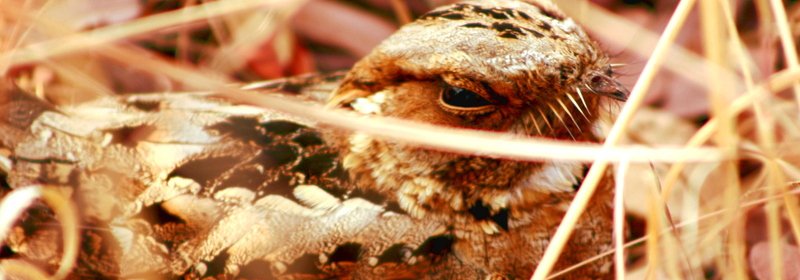Project Nightjar

We made various citizen science games and online experiments for Project Nightjar, one of the Sensory Ecology Group’s studies, based at the University of Exeter, in collaboration with the Behavioural Ecology Group at the University of Cambridge. The projects aimed to increase our understanding of camouflage in the wild and its relationship with survival by studying the camouflage of ground nesting birds, and their eggs and chicks.
Our work with the Sensory Ecology group included building citizen science games to allow people to contribute to the research by allowing us to test their perception. Predators of the nightjars include vervet monkeys, who have the same colour perception as us, so we can use humans to answer questions regarding the evolution of camouflage features such as background matching, disruptive coloration and masquerade.
One of the games, 'Find The Nightjar' was commissioned by the Natural History Museum (London) and exhibited as part of their Life in the Dark exhibition (2018).
